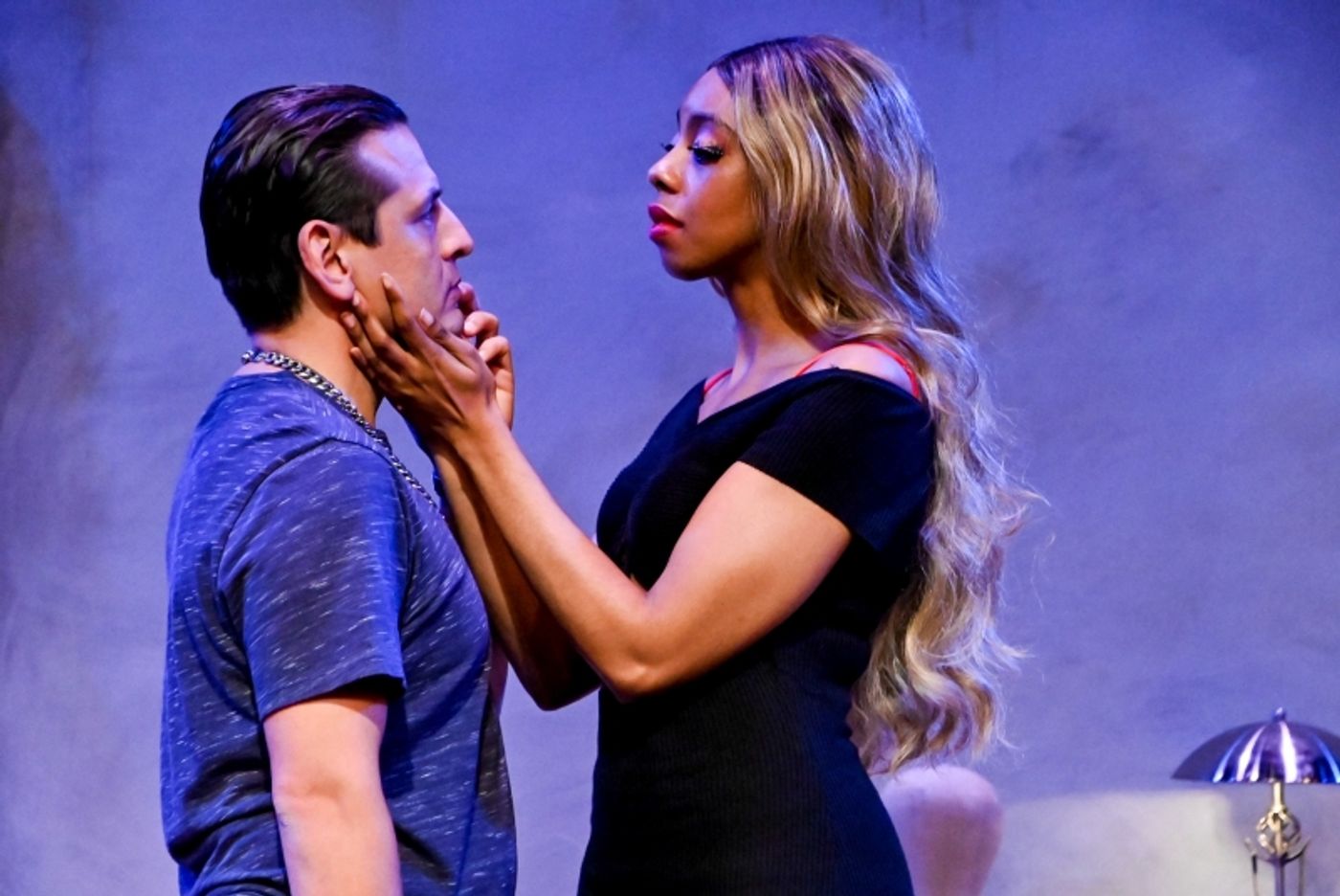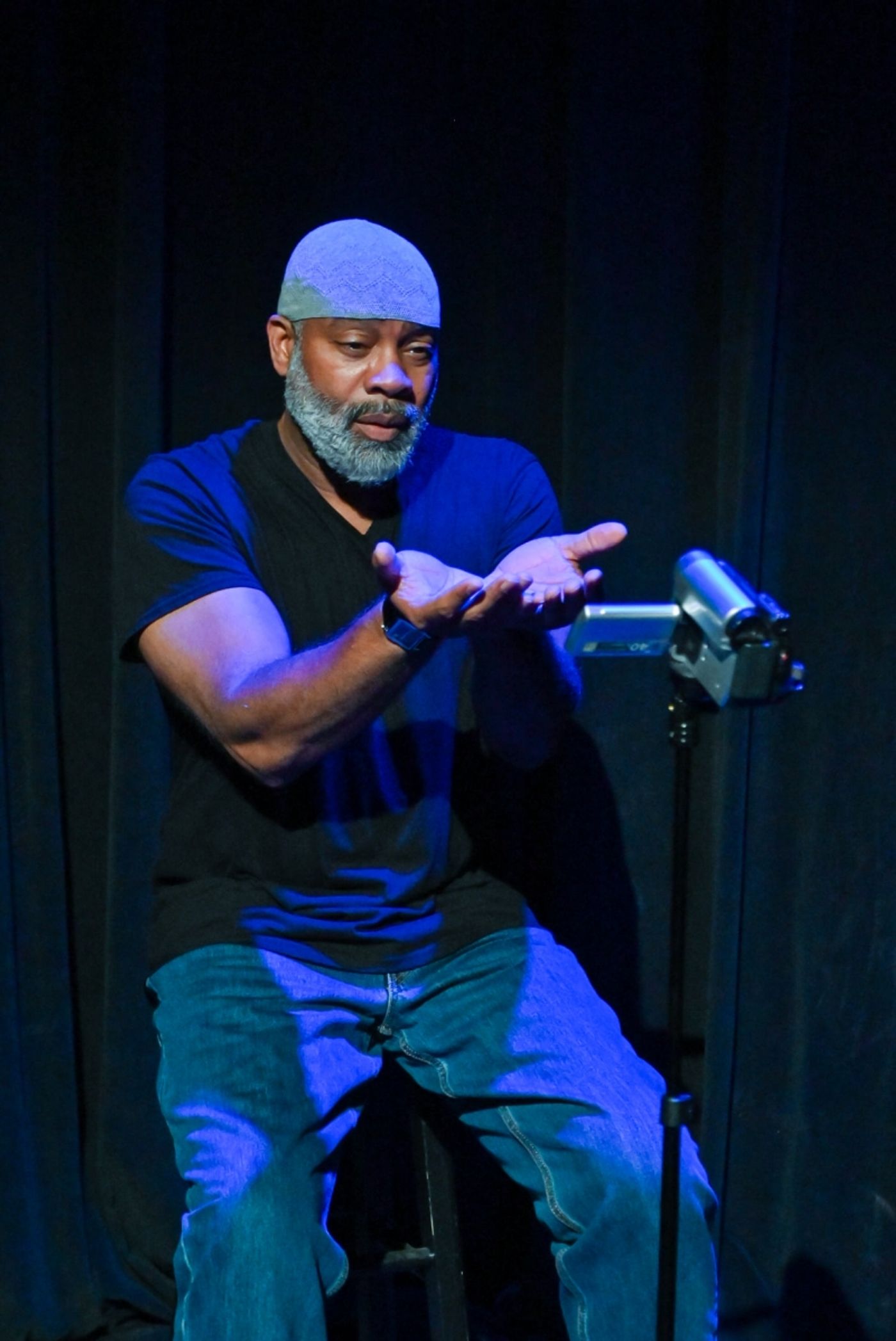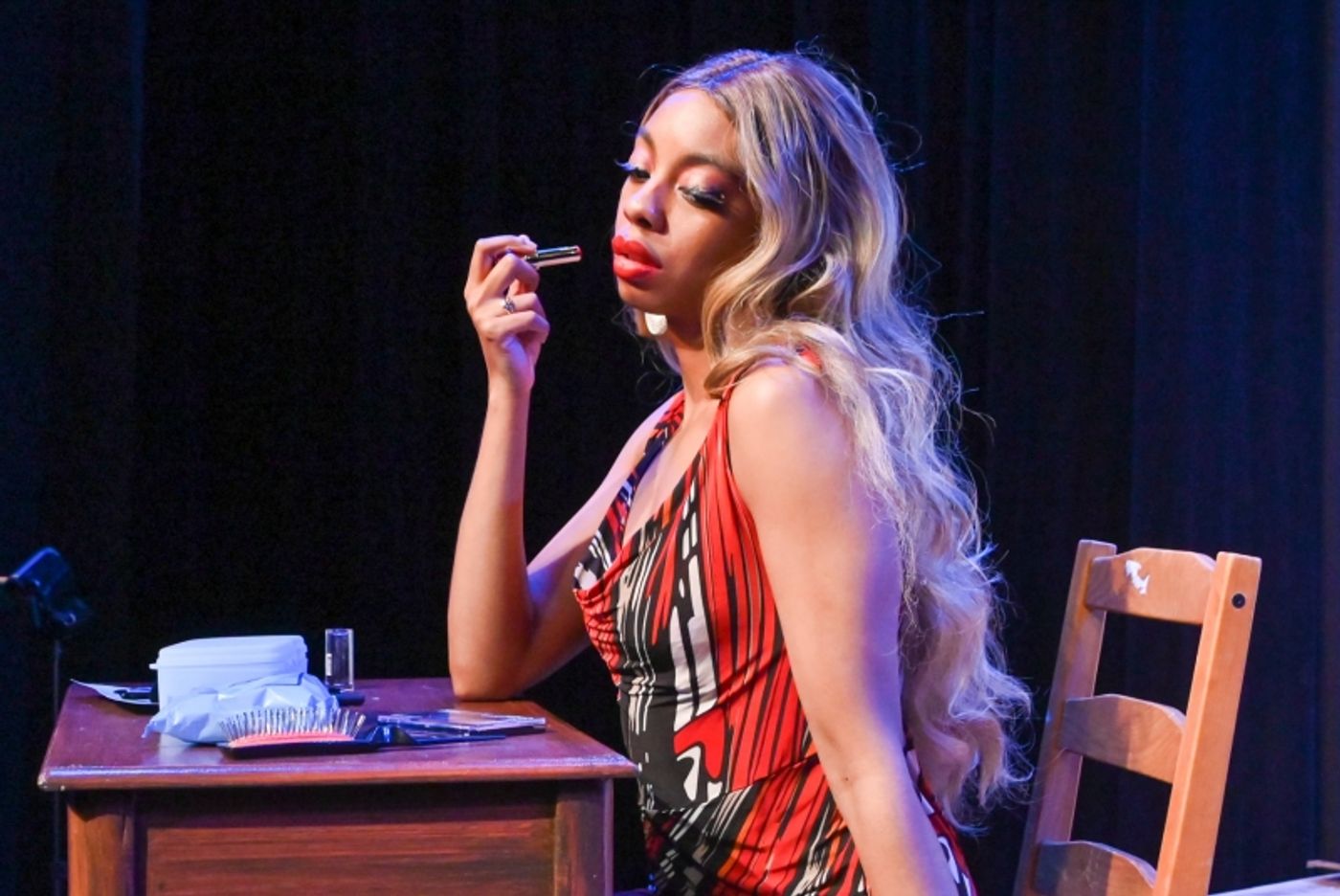Review: SUNSET BABY at Black Theatre Troupe
Two more opportunities to see this electric play!

A lot is written about the effect of an absent father on sons. The phrase "A boy needs his father" is often bandied about in conversation but not really heard concerning daughters. Scores of scholarly papers about this have been written with experiments and scientific data that reinforce the importance of a father in their daughter's life. Sunset Baby by Dominique Morisseau explores that very theme in this production by the Black Theatre Troupe (BTT).
Sunset Baby begins in Nina's apartment in Brooklyn with a rather uncomfortable confrontation scene between Kenyetta, a former political activist, and his estranged daughter, Nina. The play's overarching premise is that Kenyetta seeks reconnection with his daughter, after his wife, Ashanti X, dies. Truthfully, the reason for his initial visit is to acquire letters that his wife had written (but never mailed to him) while he was in prison; Nina's mother had left them to her in the will. Nina, rightfully incensed at the request, throws her father out of her home, so she can go to work, deal drugs and meet up with her lover, Damon, introduced in the next scene as a politically minded street hustler and partner-in-crime.
Previous reviews of this show state the script to be seemingly problematic. In those reviews, some thought Kenyetta's activism isn't fully understood, drugs and addiction seem to be thrown in haphazardly, or others find unnecessary importance is placed on Ashanti X's letters in an internet age; as Morisseau's play unfolds into a maelstrom of emotional lyricism and slam poet ponderings, it doesn't much matter. She connects the audience to a world some may not know and that others know all too well. And what is life, if not haphazard, messy, and chaotic? These characters exemplify a world that is all those things and more.

Damon, played by Marcelino Quiñonez, infuses a comedic, Pesci-Esque vibe into the role, talking fast but rattling off political philosophy with the skill of a college professor. In a way, the audience roots for him because initially, as he says early on, Nina's "hard, tight, and unforgiving" and he appears to be the softer side of their coupling. He says he's a father that wants to be a part of his son's life, but the hustling life keeps him at arm's length, setting off alarm bells from the get-go. Quiñonez, however, makes sure to also portray an element of sleaze later, at a pivotal moment in the show, and it's downright uncomfortable.

As a returning veteran of BTT, Kwane Vedrene, portrays aging activist and father Kenyetta, with the coolness and political sophistication of many great Black activists, such as Stokely Carmichael or John Lewis. There are precious few times the fiery emotions he has roiling inside come out, but as quick as they do, they get tamped down as if recalling the failings of a distant memory. In that respect, Vedrene comes off as still the aloof, elusive father that he has always been, unable to connect in a way that Nina really needs. In all his activism days, he still has yet to conquer the art of talking to his child.

Coming in hot and fiery, Ryan L Jenkins, breathes life into Nina that some would pass off as angry and dismissive. Jenkins imbues Nina with an exhaustive amount of complexity so much so that she appears to thrum with the energy by simply walking onstage. She has lived a life where exposing herself to love has always "been a liability" so she comes on strong despite the cracks in her armor. As someone fueled by a want to rid herself of an anger that has been consuming her, there's a softness in her relaxation at home, her love of the travel channel, and her want of a family of her own. The moment that is transcendent for her, is the mourning of what was her history and the culmination of her eventual transformation. It's like leaving the theatre gutted but reborn at the same time. In this way, Kenyetta gets his wish - Jenkins, as Nina, is able to turn "the madness that rages inside" into power that is triumphant.
What makes this a truly challenging play to direct is how Morrisseau wrote the intersection of these characters. Many believe that the play's focus is the father and the sacrifices that he made for his family. It's not. It's actually about the evolution of a woman beyond the constructs of being a fatherless child or using a supplanted father figure to complete herself. In this production, we see the men remain steadfast in their preconceived roles, refusing to grow or evolve with the world around them. The play's director, Louis Farber, plays up their one-dimensionality, as we only truly see a superficial glimpse into their lives, but allows Nina to shine in a transformative way. The conflict that arises between Damon and Nina, however, could have benefited from the addition of an intimacy coach, as the scene comes off as uncomfortable rather than something as intense or frightening as it could have been. Maybe it is done that way to highlight just how much Nina's own revolution is needed, but it seemed unclear.
While the stage isn't filled with much, Brunella Provvidente's scenic designs recreate Nina's apartment with simplicity and precision, leaving one to recall the days of sheets used for curtains and suitcases as coffee tables. Bret Reese and Tom Holmberg, of lighting and sound design respectively, create an ambiance that lends itself to the personality of the production, with a soundtrack filled with Nina Simone, who Nina is named after, and a smattering of lighting effects crafting particular moods. In the same vein, the team of Carol Simmons and Linda Benson do an exquisite job in translating Nina throughout the different roles she must navigate within the play. Their clothes highlight her statuesque build, making her seem 10 feet tall, powerful, and unstoppable, while at other times they seem to play up her vulnerability and desire for a life that she wants. Conversely, the other characters are always in muted tones wearing their theme of maintaining the status quo.
There are two more opportunities to see Sunset Baby at BTT, November 6th at 7:30 p.m. and November 7th at 2:30 p.m. To see a transformative show filled with lyrical introspection, effusive banter, and a whole lot of self-examination packed into a show with no intermission so it hits you all at once, get your tickets today.
The Black Theatre Troupe, Inc. has been providing training, employment, and performance opportunities for multiethnic and underserved artists since 1970 and acts to make significant contributions toward fostering the arts, specifically theater, within the State of Arizona. It operates to enhance the cultural and artistic awareness of the community by providing productions that illuminate the African-American experience and culture. It is their purpose and mission to educate, enlighten, and entertain a diverse, multicultural audience by using local, regional, and national talent with the emphasis on providing exposure to black culture and ideology. For more information on the rest of their shows this season, please visit https://www.blacktheatretroupe.org/ or call the box office at 602-258-8128.
Reader Reviews

Videos

